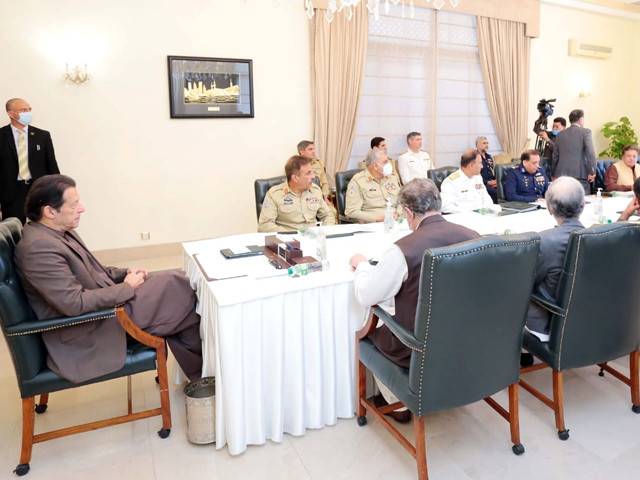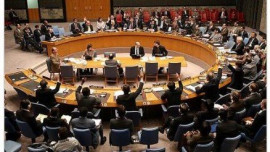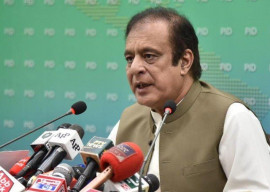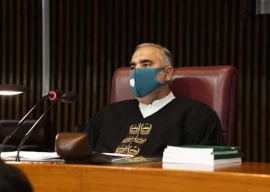
Federal Minister for Information and Broadcasting Fawad Chaudhry on Sunday announced that Prime Minister Imran Khan had summoned a meeting of the National Security Council (NSC) to review the country’s first-ever national security policy on December 27 (today).
The government spokesperson tweeted that the national security policy draft would be presented before the NSC for approval. If approved, the country will have the first-ever national security policy in a documented form since its inception as it hasn’t been codified in the last 70 years.
The draft puts economic and military security at the core of policy and outlines the challenges and opportunities facing Pakistan in the coming years. In addition, it would provide policy guidelines for mitigation and actualising opportunities through a “whole-of-government approach”.
Apart from the economic and military issues, the draft sheds light on the country’s water security as well as population growth, terrorism and foreign policy, particularly concerning the Kashmir and Afghan issues and relations with other countries in the region and beyond.
READ UNSC adopts resolution to ease Afghan aid
The NSC is a principal forum mandated for considering national security and foreign policy matters with the senior national security advisers and cabinet ministers. On December 6, the National Security Advisor (NSA) Dr Moeed Yusuf had presented the draft of the policy before the Parliamentary Committee on National Security amid opposition parties’ boycott of the meeting.
The NSA had told the attendees of the meeting that the draft was a result of the consultations with the stakeholders for the last seven years, adding it could be reviewed each year to keep it abreast with policy priorities in a fast-changing global environment. During the briefing, the NSA had briefed the parliamentarians sans opposition members the details of the policy, saying the policy was designed to leverage the symbiotic relationship between human security, economic security and military security with the prosperity and safety of citizens as its principal focus.
Moeed had said that it endeavours to put economic security at the core of policy priorities to expand the national resource pie for greater investments in human and military security. He said that the process of consultations with stakeholders for the formulation of the National Security Policy was initiated in 2014 after the establishment of the National Security Division.
In the year 2018, he added, a drafting committee was established which built on earlier work, adding that several rounds of feedback consultations on multiple drafts were held with all state institutions, including provincial government and the governments of Gilgit-Baltistan and Azad Jammu and Kashmir.
This was followed by consultations with over 600 academics, analysts, civil society members and students across Pakistan to make the policy process inclusive, he maintained.
“The policy is expected to be a dynamic document which will be reviewed each year and on the transition of government to help keep the National Security Policy abreast with policy priorities in a fast-changing global environment,” Moeed had said.
With the approval of the draft, it is being said that the country’s challenges and opportunities would be outlined for the first time and the government would be able to refer to the policy guidelines in the future.
In the 35th meeting on October 29, NSC had denounced “misuse of religion” by the Tehreek-e-Labbaik Pakistan (TLP) and made it clear that the government would not allow anyone to challenge the writ of the state in any way.
The statement had said that the participants decried “the TLP’s misuse of religion and the issue of Namoos-e-Risalat for political gains, which was misleading the common man and creating internal discord within society”.




1716998435-0/Ryan-Reynolds-Hugh-Jackman-(3)1716998435-0-165x106.webp)






1730806490-0/New-Project-(2)1730806490-0-270x192.webp)








1730706072-0/Copy-of-Untitled-(2)1730706072-0-270x192.webp)
COMMENTS
Comments are moderated and generally will be posted if they are on-topic and not abusive.
For more information, please see our Comments FAQ